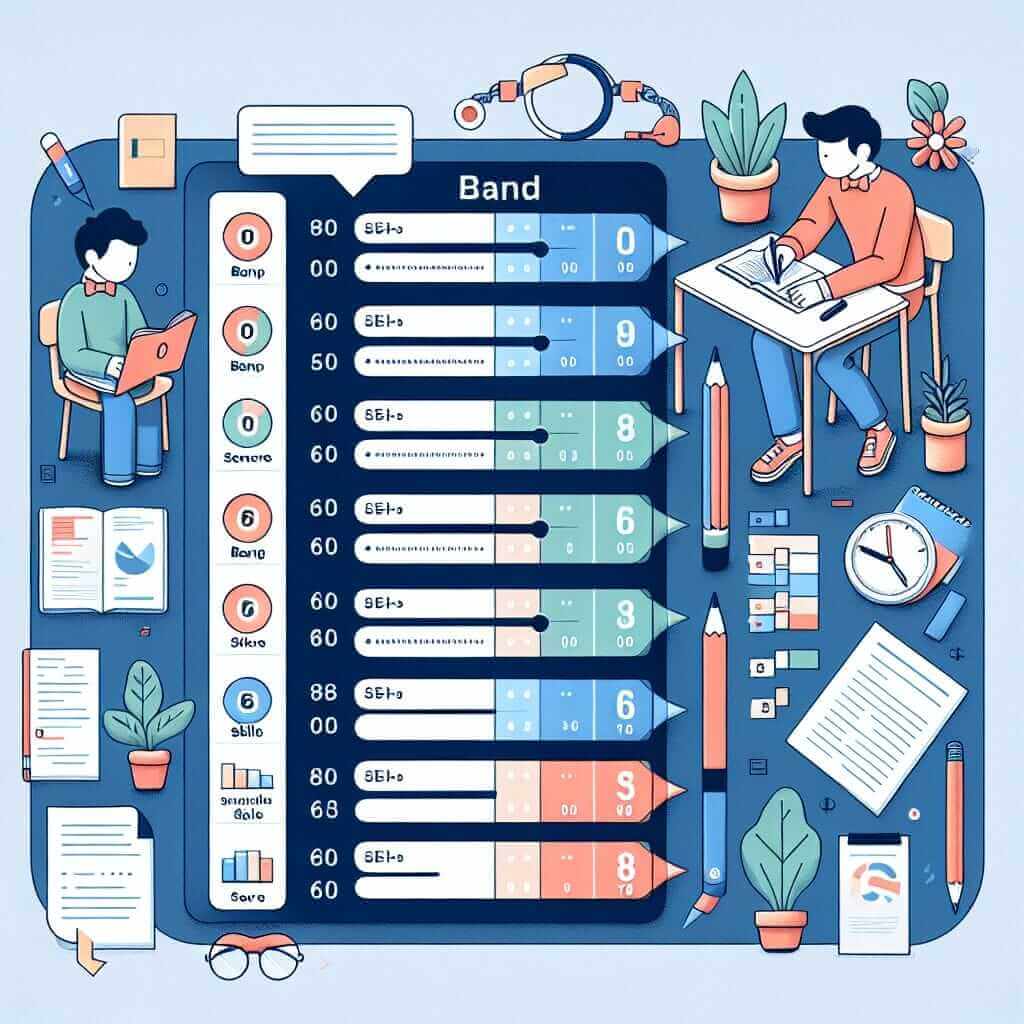The Importance of Knowing How Your IELTS Score is Calculated
As an IELTS instructor with over two decades of experience, I understand the significance of the IELTS exam in your academic and professional journey. Many aspiring candidates often ask me, “How is the IELTS score calculated?” It’s a crucial question because understanding the scoring system helps you strategize your preparation and maximize your band score.
This comprehensive guide will delve into the intricacies of the IELTS scoring system, providing you with the knowledge to interpret your performance accurately.
Breaking Down the IELTS Band Score
The IELTS exam assesses your English language proficiency across four skills: Listening, Reading, Writing, and Speaking. Each skill is graded on a band scale of 0-9, with 9 being the highest level of proficiency. You receive an individual band score for each skill and an overall band score, which is the average of the four individual scores, rounded to the nearest half band.
What Your Band Score Represents
The band scores reflect your ability to:
- Understand and respond to information and ideas: This encompasses listening and reading comprehension.
- Communicate effectively: This involves your fluency, vocabulary, grammatical accuracy, and pronunciation in speaking and coherence & cohesion in writing.
How Each Skill is Assessed
Each of the four IELTS skills has specific assessment criteria, and examiners use these criteria to determine your band score.
1. Listening: Your ability to understand a range of accents, identify key information, and follow the development of ideas is assessed.
2. Reading: You are evaluated on your comprehension of various text types, including articles, reports, and academic texts. This includes understanding the main ideas, specific details, inferences, and the writer’s opinions.
3. Writing: Your writing tasks assess your ability to present arguments, support your ideas with evidence, and use a range of vocabulary and grammatical structures accurately. Task 1 requires you to describe data or a process, while Task 2 requires you to write an essay in response to a given prompt.
4. Speaking: In the speaking test, you are assessed on your fluency and coherence, lexical resource (vocabulary), grammatical range and accuracy, and pronunciation.
Illustrative Examples from Real IELTS Tests
Example 1: Writing Task 2
Let’s say you scored a 7 in Writing Task 2. This indicates that you can:
- Present a clear and well-structured argument.
- Use a variety of vocabulary and grammatical structures.
- Demonstrate good control of cohesion and coherence.
Example 2: Speaking Test
A band score of 6 in Speaking implies that:
- You can communicate effectively, but there might be occasional hesitations or inaccuracies.
- You use a range of vocabulary and grammar, but there is room for improvement.
- Your pronunciation is generally clear and understandable.

Tips to Improve Your IELTS Score
Here are some practical tips to enhance your performance:
- Practice regularly: Consistent practice is key to familiarizing yourself with the test format and improving your skills.
- Focus on your weaknesses: Identify your areas of improvement and work on them specifically.
- Expand your vocabulary: A wide range of vocabulary will enhance your expression in both speaking and writing.
- Improve your grammar: Solid grammar is crucial for achieving a high score, particularly in writing.
- Develop your test-taking strategies: Understanding the test format and time management techniques can significantly impact your performance.
Conclusion
Remember, your IELTS score is a reflection of your current English language proficiency. Embrace the learning process, seek guidance from experienced instructors, and practice consistently. With dedicated effort, you can achieve your desired band score.